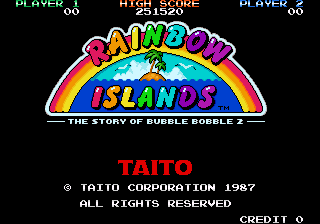
Just don't expect to be able to release it again five years later, unless it's a Compilation Rerelease.
#BUBBLE TROUBLE 1996 VIDEO GAME UPGRADE#
So what's a developer to do? Easy: take the original game, upgrade the visuals so that they're on par with the current standards, add a few more recent gameplay mechanics, maybe fine-tune the levels a little, and presto, now you can convince the consumers to buy basically the same game they bought five to ten years ago! If you want to confuse them further, you can explicitly promote it as a sequel to that game, despite having largely the same content. As computer technology and game design is constantly evolving, many titles may start to look and play extremely dated in comparison to what's available, say, five to ten years after its original release. One longtime staffer on the Hill who I spoke with this week summed up the tech interests and their DC activities: “They’re just like everybody else.” It wasn’t a compliment.While some could argue that video games are an artistic medium on par with movies and literature, most video games fail to stand the test of time in the same way that other media do. But those sanctions won’t be as harsh or as effective as the lawmakers, regulators, and maybe even the public wished for. Lawyering up and lobbying may not have totally solved their DC problem-the consistent bad behavior of those companies makes it likely that some sanctions will arise. But their instinct to avoid the slime pit of American politics was admirable. They were arrogant to think they were somehow special and could build their businesses while ignoring the government. We’ve come a long way from the days when tech entrepreneurs wanted to steer clear of DC. A bitter irony: The campaign has spent hundreds of thousands of dollars on Facebook and Google ads to drive home its point. Meanwhile, news reports claim that a multimillion-dollar effort from special interests-including Amazon, Apple, Facebook, and Google–is targeting key states and vulnerable Democrats to withdraw support from Klobuchar’s reform bills. Meanwhile, Biden hasn’t bothered to appoint a chief technology officer, who might champion the digital industry. Though she won’t say it outright, you can almost read her thought bubble: Break them up! Undoubtedly cheering her on are her administration besties, special assistant to the president Tim Wu and antitrust czar Jonathan Kanter, both of whom have made no secret of their loathing of Big Tech and their desire to constrain it. In press interviews this week–conducted because, with the recent confirmation of another Democrat, she finally has a majority of commissioners to work with–Federal Trade Commission chair Lina Khan said that she’s ready to roll with constraints on Big Tech. Meanwhile, the Biden administration has assembled an all-star team of tech foes. On the edgier side are bills that threaten to repeal the Section 230 provisions that allow platforms to moderate content, a sentiment voiced frequently in congressional hearings.

Oh, and once again there’s a privacy bill that would address the wanton hoovering of people’s personal data. Yet another bill would constrain tech platforms from favoring certain of their own products, a ban that would harm Amazon. There’s a bill to rein in digital advertising, which might break up Google. There’s an antitrust enforcement act that would fast-track efforts to police dominant companies, and maybe make it easier to break up Facebook. The congressional docket is filled to the brim with bills designed to thwart tech’s appetite for domination. The ranks of those companies are loaded with former executive branch and legislative officials.Īnd how is that going? Let’s see.

In 2021, seven tech companies spent $70 million to lobby the federal government. “When I started at Twitter in 2013, most of the people I met at orientation weren’t aware that Twitter had a Washington office,” says policy consultant Nu Wexler, who has worked for Google and Facebook as well. Companies beefed up their DC presence, but even as late as a decade ago, rising companies tried to keep their existence on the down-low.

That changed in the late 1990s as Microsoft found itself defending against-and losing-a huge antitrust suit from the Department of Justice. So the techies did their best to ignore the government.

The muck of lobbying seemed a bit unsavory. The relationship they hoped for with the wonks and suits in DC was that each side would leave the other alone. The geeky founders of big tech companies used to view government as something to be avoided at all costs.


 0 kommentar(er)
0 kommentar(er)
